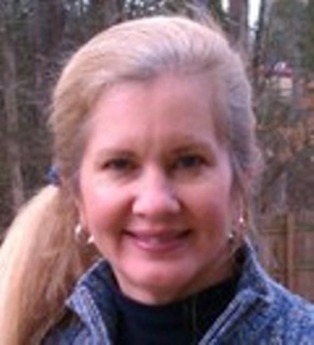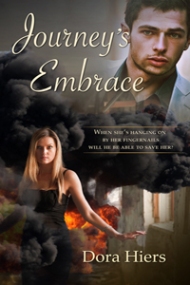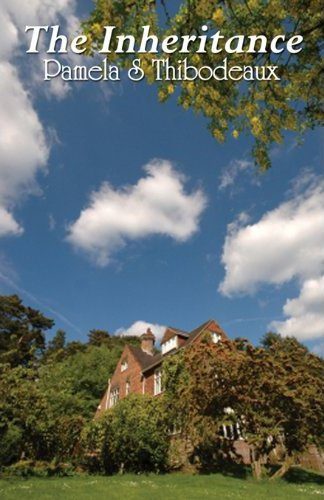Long before
I began writing novel-length fiction, I wrote my thoughts in a journal—sometimes
on paper, sometimes on the computer. I would pour out my soul to God in writing—a
prayer, if you will.
Everything
went into the journal—pain, joy, frustrations, prayer requests, and anything
and everything in between. It helped me cope with my life surrounded by many
young children. My oldest was thirteen when my seventh was born. Yes, I had
seven children in thirteen years. No, none of them are multiples.
Many
days I was at my wits end trying to keep everyone happy and schooled, but at
naptime/reading time, I could sit in my room, or at the computer, and write out
everything that was happening. It helped relieve stress. It also brought me
closer to God. I could feel His comfort as I shed tears over some of those
pages.
Over
the years, the yearning to write intensified. I would sit with pen in hand over
a blank journal page and wonder what it was I should write. Nothing came to mind,
so I kept journaling.
Many
times, over a period of two or three years starting around 2007, I sat staring
at a blank page/screen. The desire to write bubbled up inside me, but I didn’t
have a story to tell.
One
day I woke with the most amazing dream stuck in my head. I went about the day’s
business—breakfast, quiet time, school, etc. When afternoon quiet time rolled
around, I found I had to write the dream down. That dream turned into my first
novel.
I
didn’t know anything about writing a
novel, had never really considered doing such a thing. I wrote it and even had
the nerve to send it to agents, who subsequently rejected it. It hurt, but I
vowed to myself each time a rejection letter arrived that I would LEARN how to
write, and I would write a novel that would glorify God. So I joined the
American Christian Fiction Writers group and I read and listened. I went to
their annual conference and I listened. I soaked it in day after day.
Meanwhile
I was writing my second novel, One Choice.
I applied everything I had learned up to that point. I took it to conference
and pitched it. It was then that I learned large, traditional publishers did
not like for the hero or heroine to be non-American. I sighed.
I
loved the story, but I put it aside and began another novel—a Scottish
historical romance. I pitched it and sent it to editors and agents. One editor
was very kind in her rejection and
gave me some great pointers. But it was still a rejection.
While
that one had been out there in the hands of editors and agents, I began another
novel—a second Scottish historical romance. I’m still in edits on this one, but
it has been requested, and I am close to sending it to the agent and editor.
Sometime
last year, I went back to One Choice.
I still loved the story, so I decided that starting smaller was not a bad
thing. I had heard good things from friends about Astraea Press. I submitted my
story and held my breath (figuratively, of course). Then it came—not a
rejection, but an acceptance.
I was
finally going to become a published writer. And it all started with a desire to
write, and a dream.
In One Choice, my heroine, Cahri, also
journals. It became her substitute for prayer when she felt God had betrayed
her trust. However, I would say that she was still praying, albeit in a different
way and not consciously.
I
still like to journal, though now that my kids are much older, I don’t do it as
often as I used to. My prayers have changed as my children have grown. Today
many of my prayers revolve around their safety and their future. I also pray
that One Choice and any future book I
write will bring glory to my heavenly Father.
About the Author:
Ginger Solomon is a
Christian, a wife, a mother to seven, and a writer — in that order (mostly).
When not homeschooling her youngest five, doing laundry or fixing dinner, she
writes or reads romance of any genre, some sci-fi/fantasy, and some suspense.
She’s a member of American Christian Fiction Writers, president of her local
writing group, and writes regularly for three blogs. In addition to all that,
she loves animals, horses especially, likes to do needlework (knitting,
crocheting, and sometimes cross-stitch), and loves to sing in the choir at
church.
About the Book:
Cahri
Michaels is American by birth, but Belikarian by choice. Being selected to
participate in the Bridal March forces her to give up the independent life
she’s created for herself. She’s not ready to be anyone’s wife, much less to a
man she doesn’t know.
Prince Josiah
Vallis despises the centuries old tradition—the Bridal March—that is forcing
him to choose a wife from fifty women. Why does it matter that he’s twenty-five
and still single?
When Cahri
and Josiah meet, sparks fly. Will it ignite a godly love that can see them
through or will they be burned, never to be the same?
One Choice links:

















